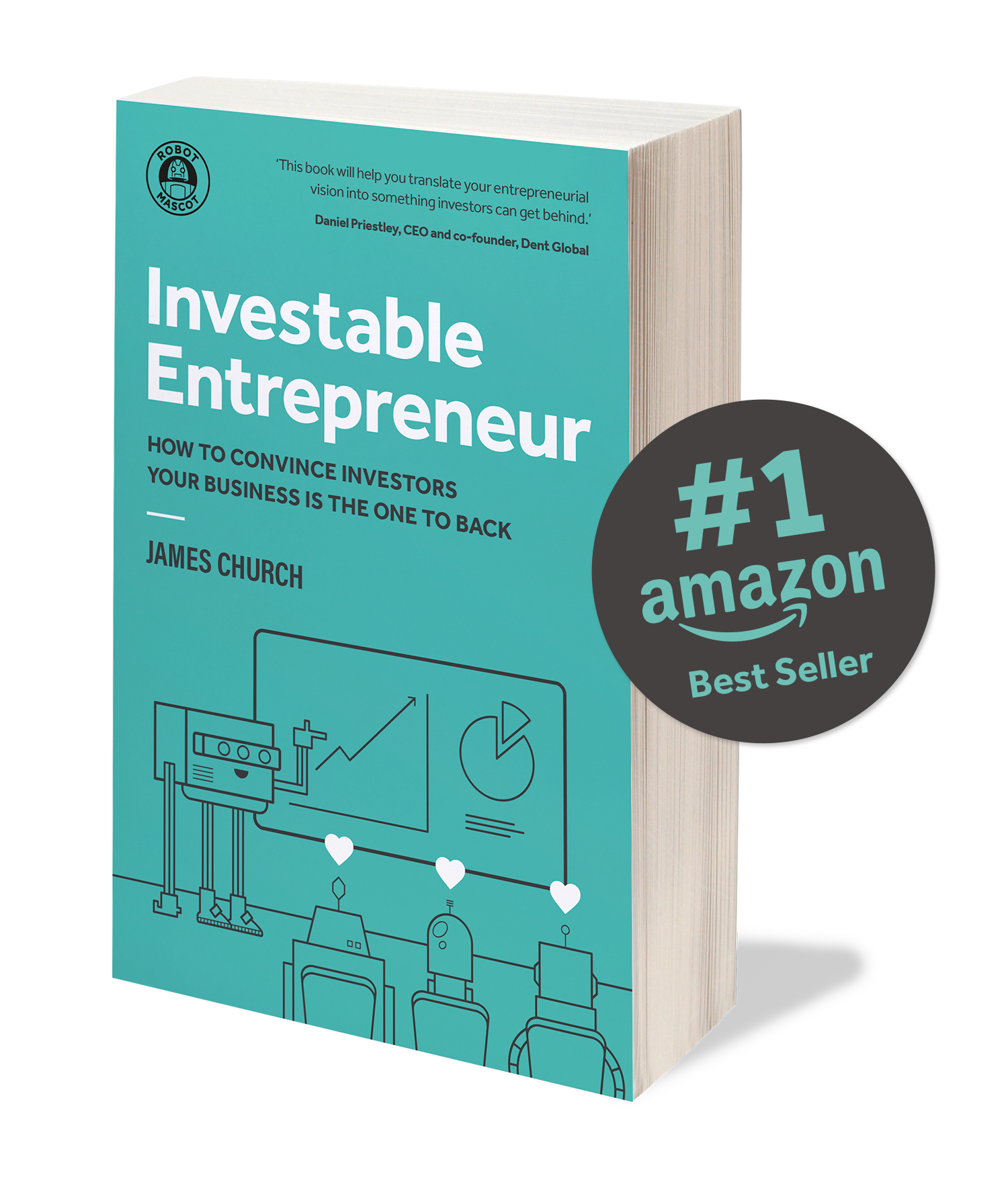

A Comprehensive Guide to Venture Capital
30th August 2022
Venture capital is one of the most important tools entrepreneurs have when starting their business. In this comprehensive guide, we’ll teach you everything you need to know about it.
What is Venture Capital?
Venture Capital (VC) is exceptionally high-risk investment. Unlike angels, who will generally invest in lower-risk startups and, as a result, will be satisfied with a lower (10x or 20x) return on their investment, Venture Capital funds are very much unicorn hunters. They’re focused on getting behind new businesses that have the potential to blow up into big, billion-dollar companies that will deliver them a 100x return or more.
For that reason, Venture Capital companies will usually only enter the investable entrepreneur’s arena after the very early seed funding stages. They’ll typically focus on startups that already have a revenue-generating product in the market and are looking to raise £2m and above. Usually, those startups will already be approaching £80k per month in recurring revenue or be close to £1m in annual recurring revenue, which means they’re well on the way to establishing themselves but still have a long way to go. This is when they’re most likely to grab a VC’s attention.
How does Venture Capital work?
Because the next unicorn could come from anywhere (it might even be you), Venture Capital firms invest in many different businesses to give themselves the best chance of finding the next twirly-horned rock star. Think of them like very strategic, upper echelon spread betters.
VC vs Angel Investors
Besides the fact that VCs are looking for much bigger rewards than an angel investor (although if an angel inadvertently invests in a unicorn, they definitely wouldn’t complain!), there is another crucial difference between them.
Whereas angels invest their own personal wealth into a business, and family offices will invest the personal wealth of the high net-worth individuals who have entrusted them to manage their money, Venture Capital funds are very much a business. They’re an investment house whose success depends on backing the best startups and ensuring their investors receive only the healthiest returns. For that reason, many people refer to VCs as a ‘due diligence facility’ because that’s a big part of the VC funds’ job. In fact, the reason most investors partner with a Venture Capital fund is because they’ve got money to invest, but they don’t want the headache of doing all that due diligence homework and seeking out investments for themselves.
Venture Capital for Dummies
Here’s how VCs operate: they’ll begin by raising a fund of a certain amount – usually anything from $100m to $500m or more – from their Limited Partners (LPs). The Limited Partners will range from ultra-high-net-worth individuals to pension funds, trust funds, insurance companies, and sometimes family offices that decide to invest in the VC rather than seek out the startups themselves. However, the LPs will usually have one thing in common. They tend to be institutional investors looking for a minimum 3x return when the fund eventually closes.
The VC’s job is to manage their investments and ensure they’ve got the right strategy to put that return in place.
How is a Venture Capital fund managed?
The fund is usually managed in a 40/40/10 split.
As a rough example (so we can keep the maths simple!), let’s say the VC has raised a fund of $100m from their Limited Partners. The 40/40/10 split means that:
- 10% ($10m) would be spent on operating costs, i.e., managing the fund, paying investment analysts, and ensuring a certain amount of the fund is held back in reserve so there will be enough money available to support the portfolio of businesses they’re investing in.
- 40% ($40m) would be earmarked for follow-on investments. This is for the rockstar companies in their portfolio they’ve already predicted will need more investment in the future, so they can invest in future rounds (protecting dilution) and continue pushing them forward.
- 40% ($40m) is the money they’re going to invest at the very beginning to bring all those businesses into the fund.
The next question a Venture Capital firm will ask is: What will our strategy be? i.e., how many businesses do we want to invest our $40m in? Should we invest $2m each into 20 companies or $1m each into 40 companies? Alternatively, will we take a bigger gamble and invest $5m each into just a handful of promising businesses?
As a rule, a VC usually wants at least 20 companies in its portfolio, so they’ll typically invest $2m each into 20 or $1m each into 40.
What level of ownership will a VC expect in return for its investment?
That depends upon the company’s valuation and how much of the funding round they’ll be taking on. The target ownership a VC will look for is usually around 15% of the company, or less if they’re not doing the majority of the round.
Why is your business’s valuation so critical when seeking VC investment?
Simply because if you go to the VC with a valuation much higher than the valuation that meets their strategy, they’re not going to be interested.
It doesn’t matter how amazing your product is or what your potential may be; the VC won’t negotiate with you because they’ve already crunched their numbers and know they need to make (for example) 20 investments of $2m each at a 15% equity stake. That’s the rule of their game, and if you’re a founder who’s not prepared to play to that rule, they’re not going to waste their time trying to wager you down to an alternative figure; they’ll just dismiss you because you’re not the right fit for their portfolio.
It’s not personal. It’s how they think. The VC is responsible for delivering its Limited Partner’s the rewards they’ve promised, so the parameters it uses to deploy its capital must be strict. All they need is one unicorn to emerge from the 20 or 40 businesses they’ve invested in or one company to deliver a return of 100x or above. The rest of the businesses in their portfolio might give a small return, break even, or even fail, but none of that matters so long as that one unicorn appears or that one company returns 100x +. That’s all it will take for the VC to pay back all the losses in the businesses that didn’t work out and give their LP’s the 3x return they’re expecting.
Could your startup be the next VC rockstar?
If you’ve followed our investable entrepreneur’s blueprint, there’s no reason why not. But you’ve got to stay realistic.
As a founder, you may believe that what you’re offering is so awesome it’s the offer that no investor could refuse, and that’s precisely how it should be. You must have supreme confidence in your own product, or else what’s the point?
However, don’t let your confidence in yourself distort your vision. A VC takes high risks because it wants high rewards, and the failure rate of investing lots of mediocre investments in startups – no matter how successful those startups may look on paper – is just too high. They’re much better off sticking with the strategy of looking for one colossal win; the single unicorn or the one 100x return business that will pay back all the other money they’ve lost plus the 3x return that will keep their LPs happy. That’s why they’re most suited to very high-scale businesses that still have a long way to go but have already demonstrated huge market potential; companies that are raising £2m or more and have a sensible valuation attached that allows the VC and its investors to take between a 15%-20% ownership.
That’s a Venture Capital fund’s tolerances. It’s their playbook. If you’re not willing to match that playbook, plenty of other founders will.
Our advice is to stick to the VC’s rules and give yourself the best opportunity of raising the investment you need.
Where can you find VCs?
If you’re focused on the UK, a good place to start is our article on the top UK venture capitalist firms. Or, if you feel like the rest of Europe is beckoning, take a look at the top European venture capitalist firms.
You can download a free copy of James Church’s bestselling book, ‘Investable Entrepreneur’.
Learn how to convince investors
Investable Entrepreneur takes you through our winning methodology – the process we use to increase our client’s chances of raising investment by more than 30x.
“This book will help you translate your entrepreneurial vision into something investors can get behind.”
Daniel Priestley, CEO and founder, Dent Global and four times best-selling business author

Keep up to date with what we’re up to via email






Copyright ©Robot Mascot Ltd. All rights reserved.





